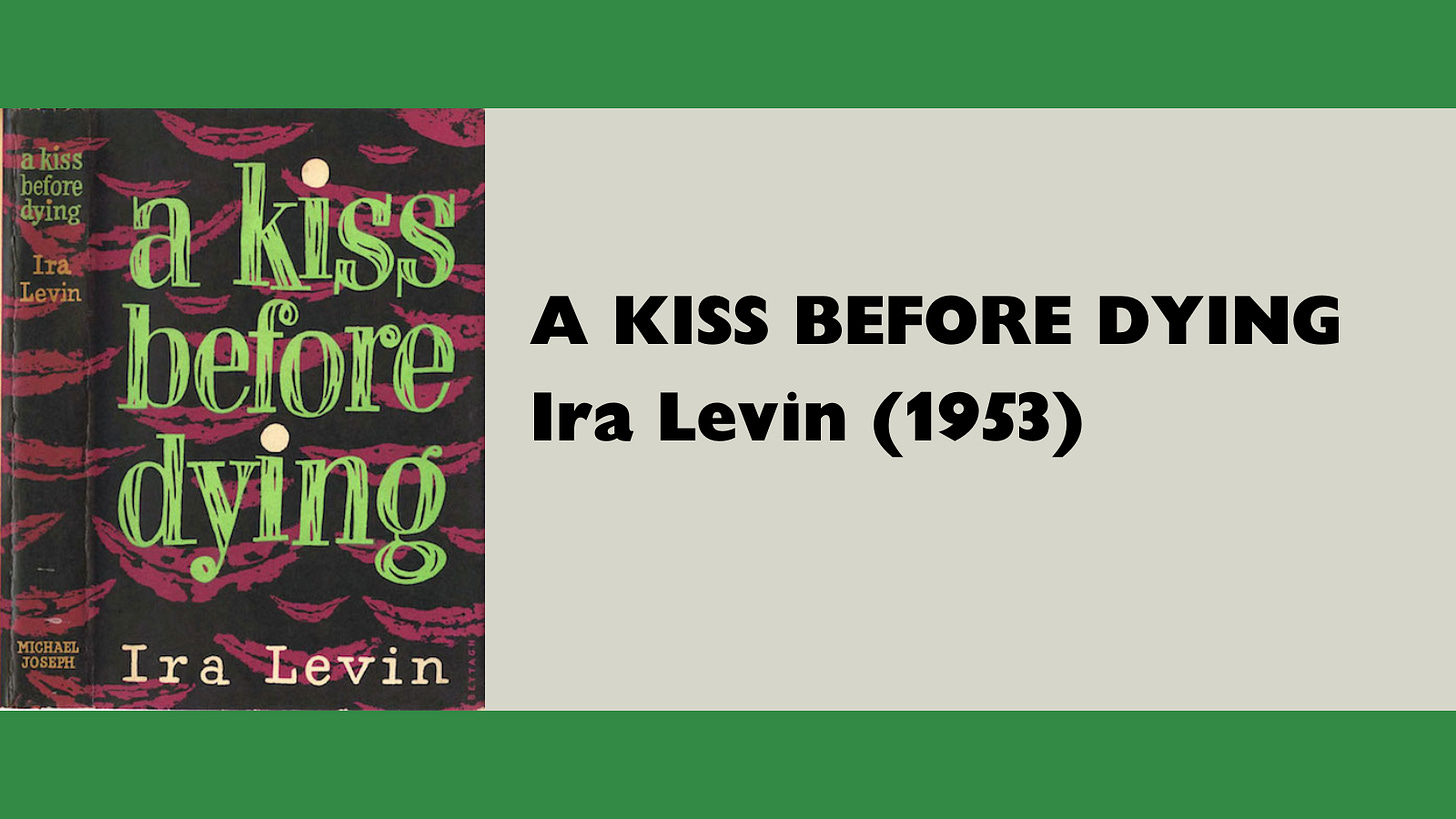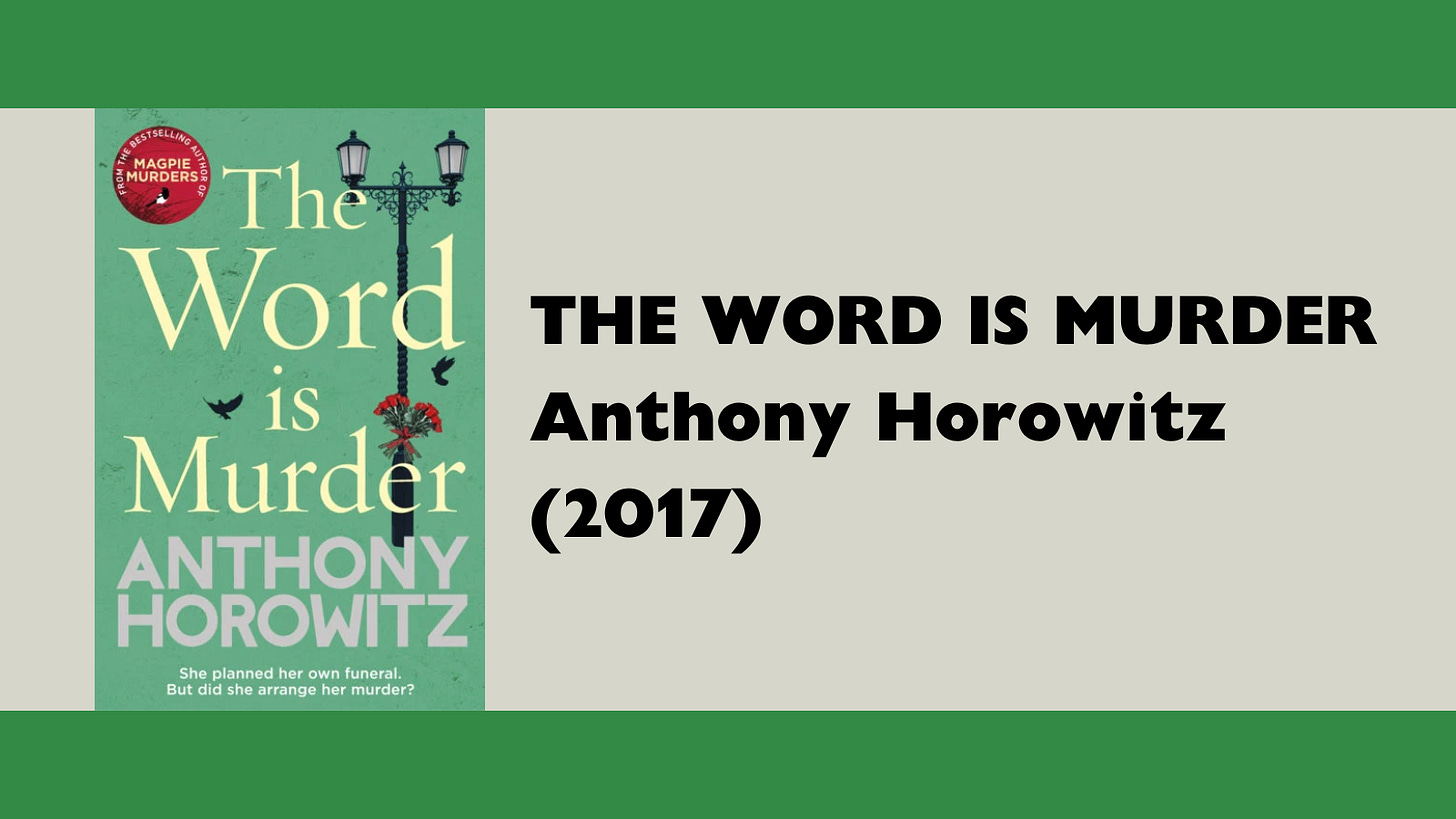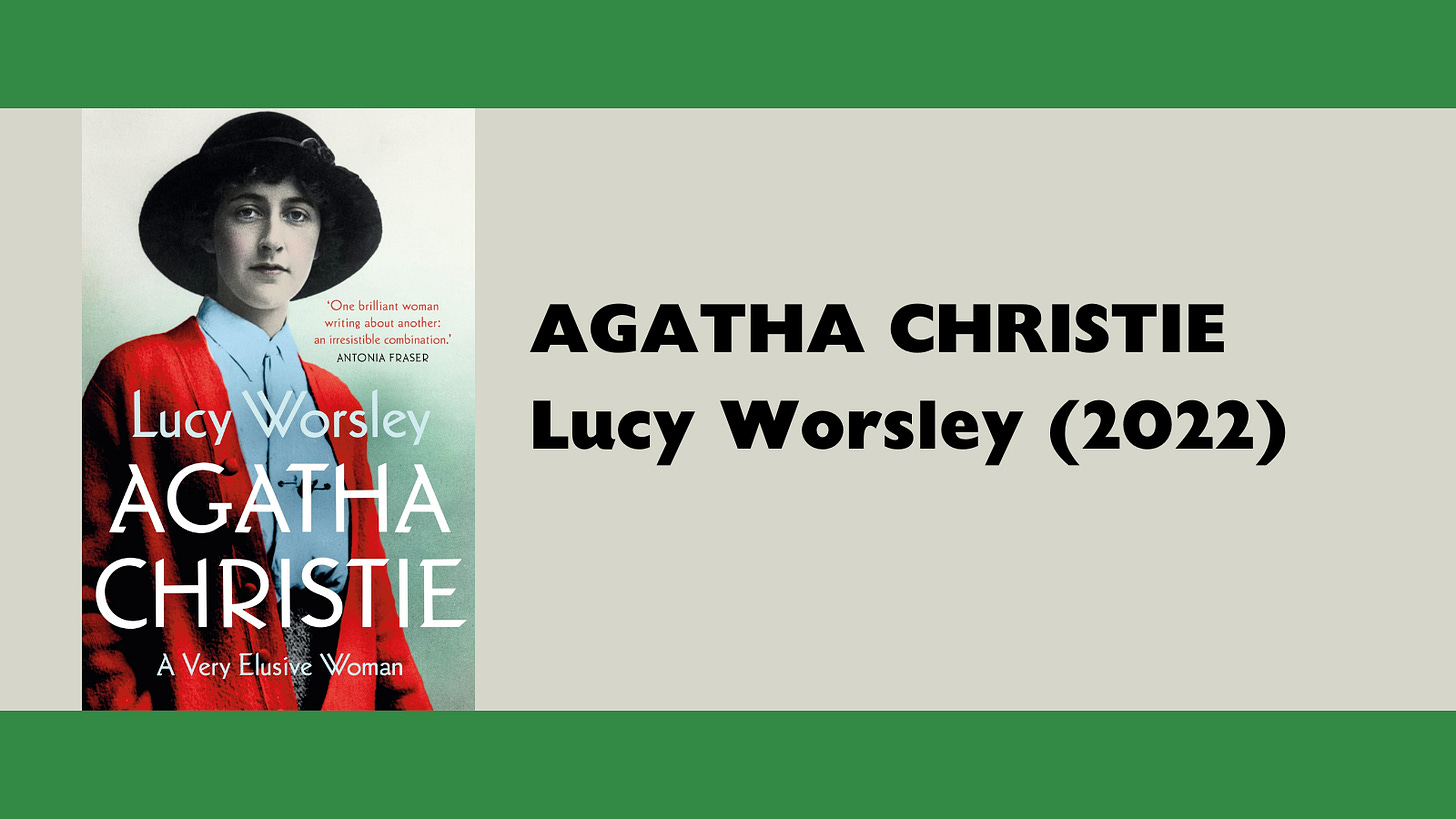We’ve reached the season when many internet users share lists of their favourite reads of the year. I’ve already written about some of mine on this blog — James Cain’s Double Indemnity, Richard Hull’s Murder Isn’t Easy, and Benjamin Stevenson’s Everyone In My Family Has Killed Someone being foremost among those.
But there are other excellent books I read in the first half of 2024, before this blog began, which I haven’t written about yet. Here’s a roundup of another seven titles that I thoroughly enjoyed this year, in chronological order of publication.
At the encouragement of a friend, I ventured into unfamiliar Victorian territory in January with The Moonstone by Wilkie Collins. I was pleasantly surprised by how much I enjoyed it. So when our local library started a reading challenge in the summer, and included the category “A book more than 400 pages long”, I decided to pick up The Woman in White. It’s quite a bit more than 400 pages, as it happens — 700 in the edition I read. And yet, Wilkie Collins definitely makes your investment of time and attention worthwhile.
The Woman in White is an early sensation novel, featuring (as the title suggests) a mysterious woman in white. The story is told in a brilliantly compelling way, narrated (like The Moonstone) from multiple perspectives. There’s also a cast of memorable characters, especially Count Fosco ("He was past sixty, and fond of pastry"). I enjoyed the humour too, and will definitely be borrowing the words of Mrs Catherick next time someone asks me what time to come for dinner: "My hour for tea is half-past five, and my buttered toast waits for nobody". Admittedly, the plot does drag at a few points, especially the final hundred pages, but this is still a very enjoyable and memorable read.
Verdict: ⭐⭐⭐⭐ (4/5)
This year, I also made my first forays into the world of American noir, first with James Cain, and then with Ira Levin. I have the local library challenge to thank for this read too, as one of the categories was “an award-winning book”. A Kiss Before Dying won the 1954 Edgar Award for Best First Novel, and deservedly so.
One of the things that sets this novel apart is its clever structure. It begins with a kind of inverted crime plot, but with a twist: the murderer isn’t named, so when the investigation begins, you don’t know who to trust. The characters are fascinating, and there are some definite shocks in store for the reader. This is a brilliantly gripping read, right up to the last page. The denouement will stick in my mind for some time to come.
Verdict: ⭐⭐⭐⭐⭐ (5/5)
Anthony Horowitz was a significant name in my teenage years, as I was an avid reader of his Alex Rider novels. In the last few years, I’ve picked up a few of his adult novels in charity shops, and decided to finally move this one from the TBR shelves to the HBR shelves. I’ve since recommended it more than once (three times in fact). It has a brilliant premise, brilliantly executed.
The plot begins with a women who is murdered just a few hours after organising her own funeral. And then we meet the detectives — and one of them is Anthony Horowitz himself, as one half of an amusingly awkward duo with Daniel Hawthorne. There is so much to enjoy about this novel. The mystery itself is great, with clever clues and plenty of red herrings. At points Horowitz breaks the fourth wall to mess with you, such as when he tells you on page 43 that chapter one contains “a clue which would indicate, quite clearly, the identity of the killer.” There is wonderful humour throughout, and fascinating interplay between the two detectives. I really look forward to reading more Horowitz.
Verdict: ⭐⭐⭐⭐⭐ 5/5
I hope we can all agree that Death in Paradise is one of the best things to happen in the world of television in the last fifteen years (alongside Octonauts and Go Jetters). The show has a winning combination of clever plots, well-written characters, witty dialogue, and an excellent soundtrack. You’ll find all of these features equally present in Robert Thorogood’s Death in Paradise books — except the soundtrack, which you’ll need to supply yourself.
Murder in the Caribbean is the fourth Death in Paradise novel, with DI Poole and the gang investigating a murder with links to the past. As in the previous three books, the character interactions transfer perfectly to the printed page. The mystery is clever too. You know the official line of investigation can't be right, because the solution is too obvious. Yet, when I thought I'd predicted the real solution, I turned out to be very wrong. Superb.
Verdict: ⭐⭐⭐⭐⭐ (5/5)
I picked this up slightly randomly, mainly because I liked the cover, and I'm very glad I did. It's the first in a new series of impossible crime novels featuring an amateur sleuth who is a magician (immediate Jonathan Creek vibes, which I love). In this case, he's brought in to help investigate two apparently impossible locked room murders.
One of the things that makes this an especially delightful novel is that Tom Mead writes as a very obvious fan of classic crime, and you can see the clear influence of writers like John Dickson Carr and Ellery Queen. Sadly, there is no map or diagram, but there are lots of other great ingredients, including a Hollow Man-style discourse on categories of locked room murders, and a Challenge to the Reader at the point where you have enough clues (in theory) to piece together the solution. Yet this is more than a self-conscious tribute to the Golden Age of detection. It’s a very good mystery in its own right. A wonderful book, which has made me a definite Tom Mead fan.
Verdict: ⭐⭐⭐⭐⭐ 5/5
One of my purchases when visiting Greenway last year, this is an exceptionally good biography. It’s a wonderful combination of an excellent biographer and a fascinating biographee. As the title suggests, Agatha Christie is an elusive subject in many ways, avoiding publicity in her life and being flexible with the facts in her autobiographical writing. But Lucy Worsley successfully penetrates some of this elusiveness to present an engaging and comprehensive portrait of Dame Agatha.
One of the things that stands out is how Worsley writes compassionately and sensitively about the difficulties surrounding Christie's first marriage, including the notorious 1926 disappearance. She shows how this period, which could have broken Christie as an author, actually became the catalyst to a growing career. In terms of Christie’s writing, it's fascinating to see how she combined a somewhat chaotic approach to plotting and careful research. Along the way, Worsley addresses some of the more problematic aspects of Christie's legacy, including her antisemitism and her use of racial stereotypes. Highly recommended for Christie fans.
Verdict: ⭐⭐⭐⭐⭐ (5/5)
I may be biased by my home address, but this is definitely my favourite short story collection in the British Library Crime Classics series so far. It’s an excellent anthology of atmospheric Wales-related tales, set in Wales and/or by Welsh authors. There are some strong stories by well-known crime writers like Ethel Lina White (Welsh), Carter Dickson (not Welsh), the Coles (also not Welsh) and Christianna Brand (married to a Welshman). I also enjoyed the macabre tales that Welsh authors are apparently fond of, like the contributions of Roald Dahl and Rhys Davies. And then there was the joy of discovering lesser-known authors like Frank Howel Evans, Cledwyn Hughes and Jack Griffith.
As usual, the introductions by Martin Edwards add extra value to the collection. It was fun to learn that Dylan Thomas was a detective fiction aficionado and reviewer, and interesting to learn that Ethel Lina White bequeathed her entire estate to her sister "on condition she pays a qualified surgeon to plunge a knife into my heart after death."
Verdict: ⭐⭐⭐⭐⭐ (5/5)
After a few quiet months on here, I’m hoping to return to regular posting for 2025. If you haven’t already subscribed, now is a good time!











